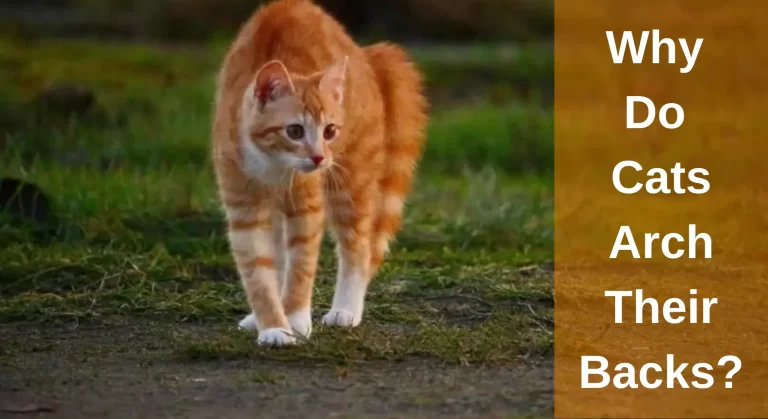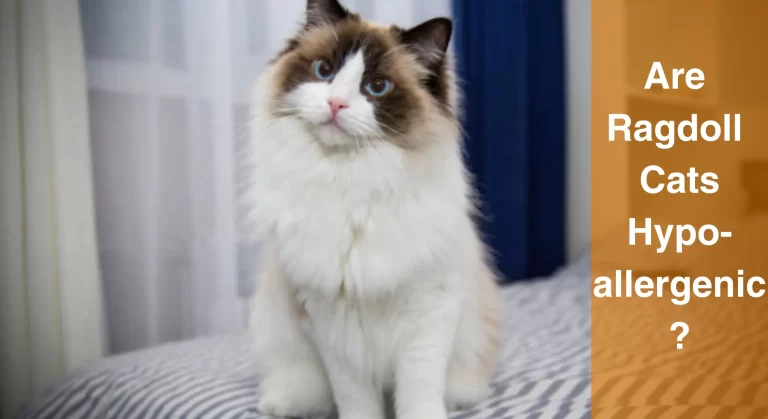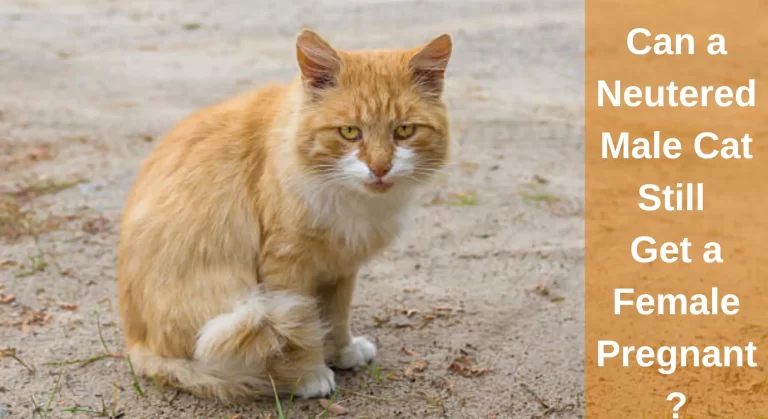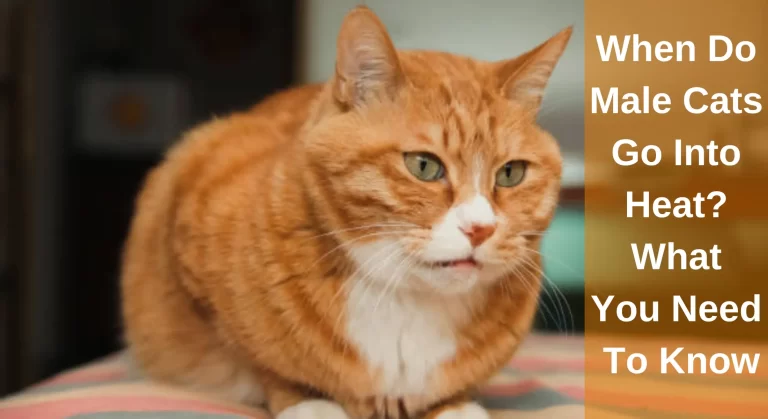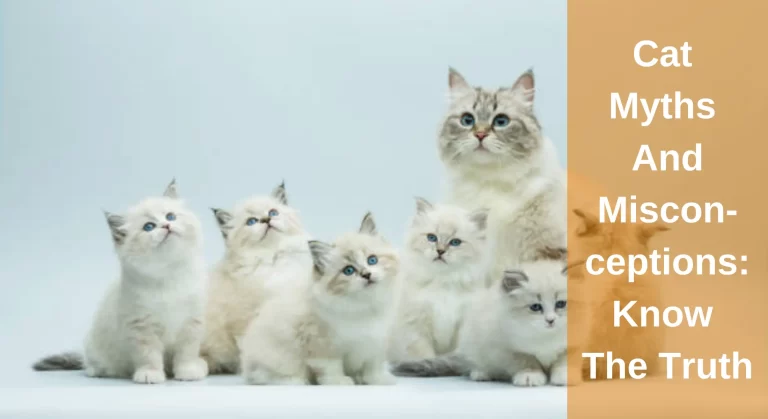What Do Cats Think About All Day? A Cat’s Thought Process
Cats have a level of mystery surrounding them. They are generally deemed as indifferent, and it seems like all they really think of is food and sleep (which is the perfect life). However, you might find your feline sitting, bluntly staring into space. Ever wonder what goes on in its head? What do cats think about all day? Read this article to find out!
During the day, cats think about staying safe, protecting their space, and having fun. They plan their next meal, make sure their territory is secure, play to satisfy their hunting instincts, and build relationships with people and other cats. Their thoughts are a mix of their basic survival instincts and their feelings for the world around them and the friends they have. Also, Cats do not have executive thinking like we do, which means, unlike us, they do not recall memories or have logical thinking.
In this article, we’ll delve into the feline mind and explore the fascinating world of a cat’s thoughts, feelings, and behaviors.
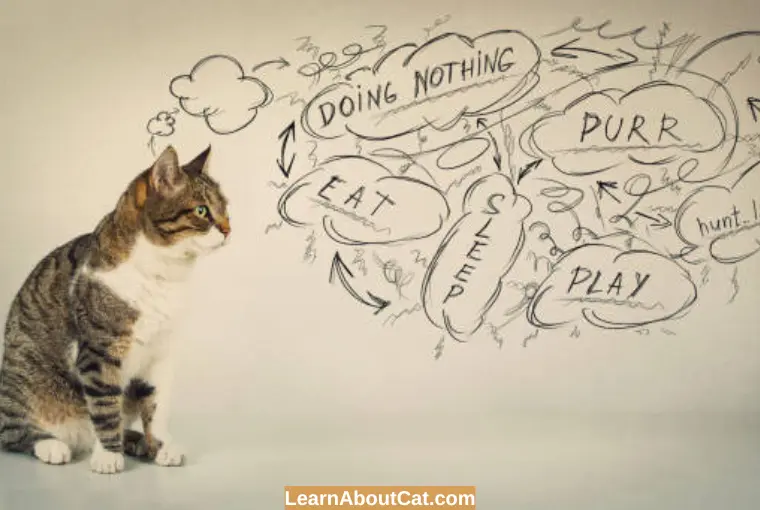
Do Cats Think About Things?
Cats do not possess the same kind of cerebral activity that we do. It is not like they can contemplate the meaning of life or are blessed with executive thinking. Despite that, felines do have active brains and, in fact, are able to think about things. What they think about is mostly:
- Past memories
- Themselves
- Their surroundings
- Their owners
It is commonly said that an empty mind is a devil’s workshop. So humans can have all sorts of thoughts when idle and can even daydream. This does not stand true for cats as they do not have a default mode network. These interconnected, complex neurons allow us to think about things more deeply. They are, however, absent in other species, including cats.
Find Out: Do Cats Understand Words?
How Are Cats Able to Think?
When staring blankly or lounging around, cats have empty brains. In fact, you can think of it as a meditative state, where your feline is really relaxed and not thinking about anything. When it comes to thinking, cats think about food, water, the litter box and probably you.
Which means cats are masters of “staying in the moment”. Like us, they do not worry about the past or the future.
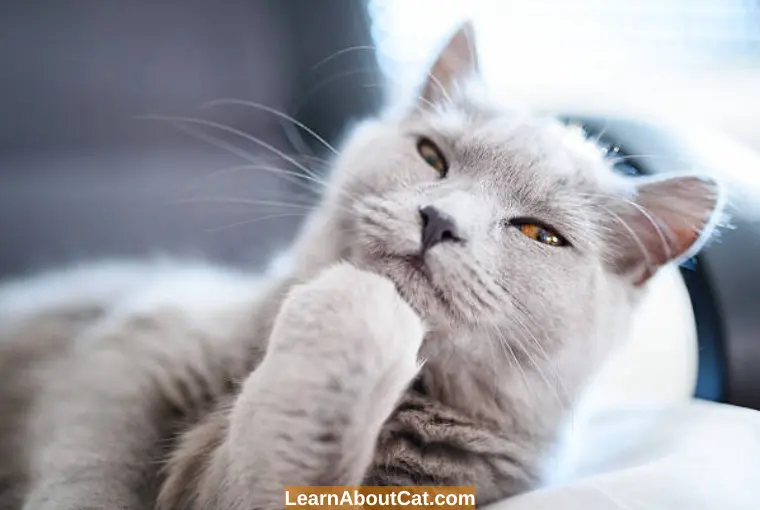
Its working memory activates only when you put something in front of your feline. This is when your cat decides how to act based on its past experiences. Cats do not form memories like humans but do form associations or links based on previous experiences.
This is why some felines get excited when they see a favorite toy, but others might be scared of it, or why some rescue cats are initially very aggressive. They act based on their past experience and make positive or negative associations that mitigate their behavior and help them navigate the world.
Check Out: Why Do Cats Meow Back At You When You Talk to Them?
What Is A Cat’s Thought Process? When Do Cats Use Working Memory?
A cat’s thought process is mostly in a dormant state, meaning they don’t think about much during the day. They are not able to think about the purpose of life or live over past regrets as they can. Instead, they think about what is relevant to them and what they need.
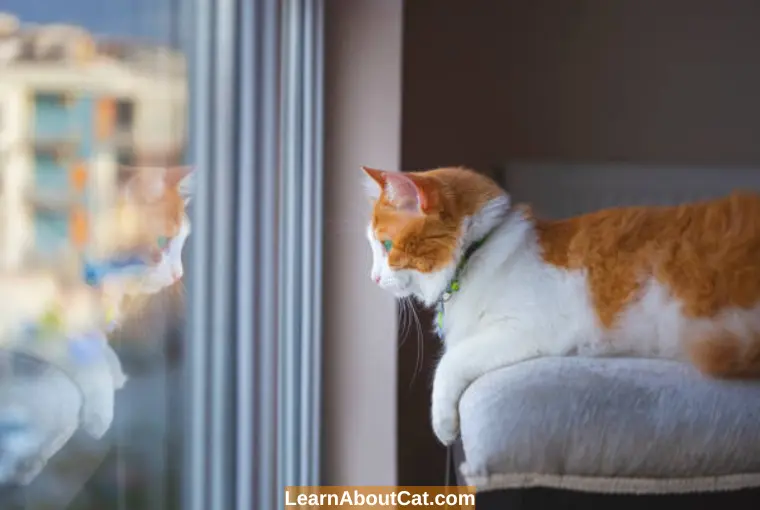
If a cat is a stray or wild cat, it will think about its next meal, hunting down prey and finding shelter. A house cat thinks about food when hungry, water when thirsty, the litter box when needed, and its owner when it doesn’t see you around.
They activate their working memory when presented with a past situation or object. Working memory is the capacity of your cat to recall how it felt in a similar circumstance in the past. So, for example, it will avoid going onto the open road because it remembers “fear” from when it was accidentally hit by a car in the past.
Or when you teach your cat to high-five you and reward it with a treat, it associates high-fiving you with getting a treat or seeing your hand raised up and remembers to repeat the same behavior. This is a classic sign of working memory in action.
Also Check Out: Why Are Cats So Stupid?
Do Cats Think About Their Past?

No, cats do not think about their past.
Felines do not have the same level of cognition and cerebral activity as we do, so they do not form crystal clear memories of the past, nor do they sit down and ruminate about the past like we are able to do.
Cats have the “live in the moment” situation nailed down pretty well, so all they really think about is what they need in the present. They don’t sit around thinking about their kittenhood or something embarrassing they did in the past.
What Do Cats Think About When They Stare?

What a cat thinks about while staring largely depends on the object they are staring at. If they are staring at a dangling toy, looking ready to pounce on it, they most probably are not thinking anything but are letting their primal instincts take over.
If they are fixated on you, they are most probably silently communicating their affection towards you. Long stares and slow blinks are feline ways of communicating their comfort and adoration to someone.
If you find your cat staring outside or at a wall, it probably isn’t thinking about anything at all and is completely zoned out.
Also Read: Why Does My Cat Stare At Me?
What Do Cats Think About Their Owners?
Cats do show an obvious attachment towards their owners and people they can trust. It is thought that cats think of us as huge felines with long limbs walking around on two legs and doing weird stuff.
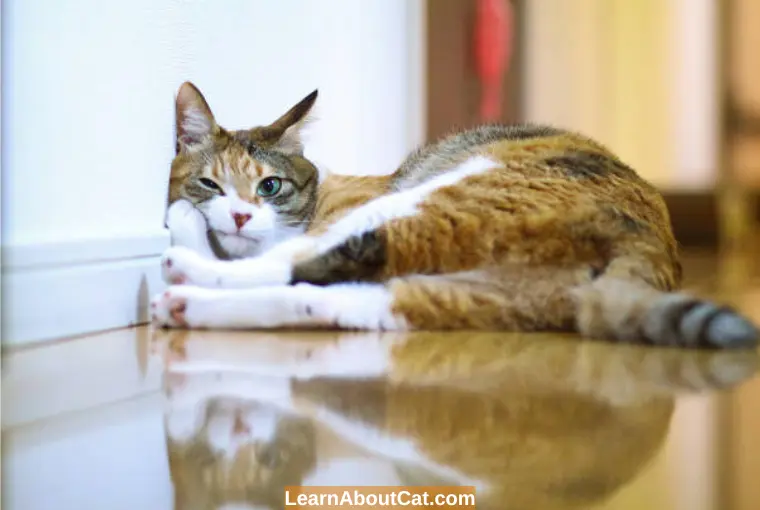
This is derived from the fact that cats rub against us and groom us in the same way they do with other cats. In contrast to their pet equivalents, dogs behave differently around people than they do around other dogs, demonstrating that they can tell people and dogs apart.
Other than that, felines think of their owners with feelings of affection and contentment and as someone who gives them food. Some cats exhibit separation anxiety when their owners leave, so it is safe to say your feline thinks about you when you are gone.
How Do I Know What My Cat is Thinking?
Cats do not have the most expressive faces, so it is hard to look at them and figure out what they are thinking. To know what your feline is thinking, it is best to spend as much time with them as possible. This will help you understand your pet’s personality, its likes and dislikes, and what scares it.
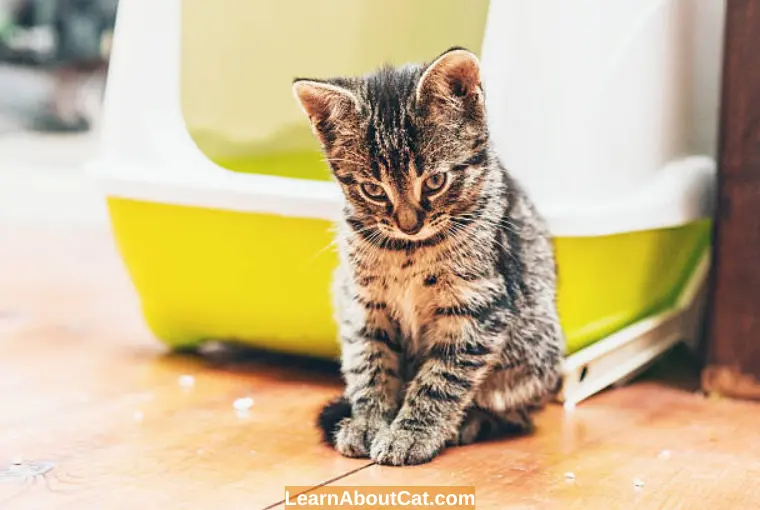
If your furry friend is meowing for food, it is probably thinking about food and is hungry. If your feline feels the need to use the litter box, it will think about doing so.
If there is a new edition to the family or a new pet, it will react according to its past experience. Cats do not think more than this as their brains lack the complex cerebral cortex and neurons that humans have.
Interesting Reading: Why Is My Cat Sitting Like a Human?
Frequently Asked Questions
What do cats think throughout the day?
Cats primarily think about their basic needs like food, sleep, and play throughout the day. They also consider their immediate environment and interactions with humans and other cats.
What do cats think when we talk to them?
When you talk to your cat, it may not understand the words you’re saying, but it can pick up on your tone and body language. Cats often associate the way you talk with how you feel, which can influence their response to your conversation.
What language do cats think in?
Unlike humans, cats do not think in words or a specific language. The Wernicke’s region, which is in charge of interpreting speech, is absent from the feline brain. So instead, cats think in images, similar to how babies dream or think before learning how to speak.
Do cats think in meows?
Meows are simply sounds that cats make to communicate with humans. It is merely a means for them to communicate their message; it is not a language. Therefore, they do not think in meows.
Do cats think in English?
Cats do not understand English, so they cannot think in this language as well. While it may seem that they understand everything you say, they are most likely used to the tone of your voice and your body gestures.
Wrap Up!
Cats are great at living in the moment. All they think about is their needs, their owner, and their environment. They lack the ability to think cognitively and logically due to a different brain structure. However, they can make positive and negative associations with something they encountered in the past, which influences their behavior when they come across it again.
Related Posts:
Who is Isabella?
My name is Isabella, and I am a dedicated and knowledgeable cat enthusiast. With years of experience caring for cats and a deep love for felines, I made a mission to help other cat lovers navigate the challenges of cat ownership.


